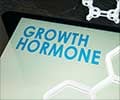Researchers have progressed towards developing a new hormone therapy that could help improve outcomes in such surgeries.
A new study published in the journal Molecular Pharmaceutics suggests that while bone grafts continue to remain a major medical challenge, researchers have progressed towards developing a new hormone therapy that could help improve outcomes in such surgeries.
Zulma Gazit at Cedars-Sinai Medical Center, Edward Schwarz from Rochester University and colleagues note that surgeons perform nearly 100,000 head and facial bone-grafting procedures every year to treat bone loss from disease, birth defects or traumatic injuries. Though this kind of reconstructive surgery dates back to ancient times, the options for implant materials remain limited. Doctors can remove bone from another part of a patient's body or use lab-made materials, but these methods can lead to serious complications. Currently, one of the preferred alternatives is to use bone grafts received from tissue banks, but they often don't join with the bone they're supposed to fix. Preliminary studies have shown that parathyroid hormone (PTH), a drug approved by the U.S. Food and Drug Administration to treat osteoporosis, helps repair fractures in long bones. The team wanted to see if PTH also would help head and facial donor grafts fuse into place.
They tested the hormone in mice with skull defects that they implanted with donor grafts. Daily short-term PTH treatment improved bone formation around the grafts and prevented scar tissue, which can interfere with graft integration, from forming. "These findings will aid in the development of an attractive bone graft, which is readily available, for use in craniofacial reconstruction," they say.
Source-Eurekalert

 MEDINDIA
MEDINDIA




 Email
Email







